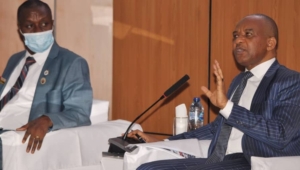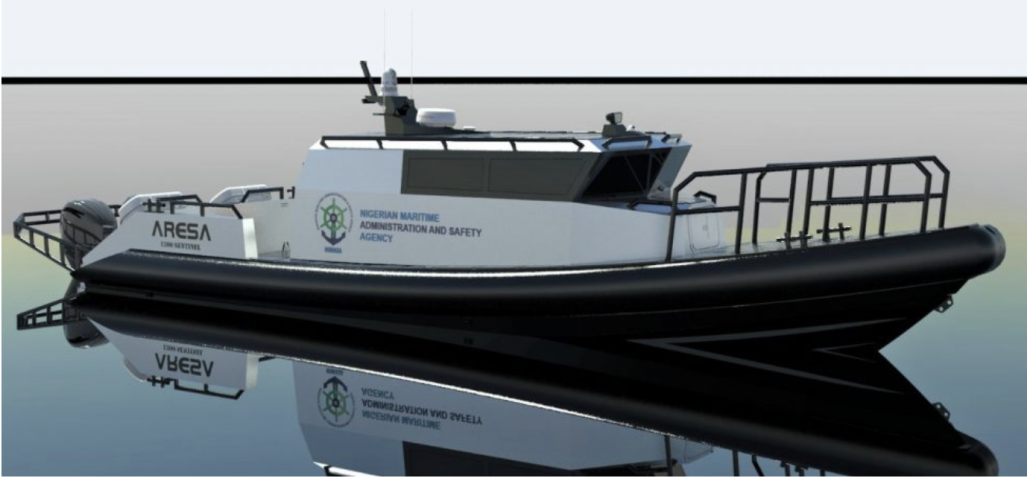On 15 November, Mr. Ubong Essien, Special Assistant on Communication and Strategy to the Director-General of NIMASA, disclosed that NIMASA remains committed to achieving the lifting of the War Risk Insurance (WRI) Additional Premium, often referred to as a ‘surcharge’, imposed on international shipping operating in part of the Gulf of Guinea by the Joint War Risk Committee. (JWRC)
In September 2021, Arete reported the same ambition still being held by the Director-General of NIMASA, Dr. Bashir Jamoh, despite a rebuff by the JWRC following a previous lobbying attempt by NIMASA in June. The position of NIMASA is premised on the apparent reduction in piracy and other acts of maritime criminality in Nigerian and littoral waters of other Gulf of Guinea states.
While the piracy figures in the region have indeed fallen in 2021 compared to previous years, there are many variables and numerous underlying factors that may explain the drop in the number of reported piracy incidents other than an increase in regional maritime security. Arete published its own analysis of these factors, including a review of the current rate and intensity of maritime criminality in the region, in October 2021, you can read it here.
The key issue behind the drive to remove the surcharge is the economic impact on Nigeria’s macro-economic situation, as shipping operators seek other options other than to use/enter Nigeria’s congested ports. Additionally, the inflationary pressure felt in the domestic markets as suppliers pass on the additional costs of shipping goods into the country is significant.
The rapid response by the JWRC to Nigeria’s previous lobbying in June 2021 reflects the conservative position of the Committee. The JWRC is a grouping of underwriting representatives from the Lloyds Market and other insurance underwriters’ associations. The body meets quarterly to represent the interests of marine hull insurance business and identifies so-called ‘Hull War, Piracy, Terrorism and Related Perils Listed Areas’. Listed Areas are defined as those areas where risks are elevated to the point where additional insurance cover is required to protect shippers against those risks.

The Committee sets the Listed Areas purely for business reasons and does not have any political or security function. This is an important point as it means the Committee’s decisions are purely pragmatic and driven by metrics. What that means for Nigeria is that although the country has invested heavily in securing its territorial waters, the strong evidence that acts of piracy outside those waters, in the EEZ and beyond, are still being carried out by Nigerian organised crime groups (OCGs) generates a view that there remains a latent risk inside Nigerian waters. Furthermore, the listed area encompasses the territorial waters and EEZs of other littoral states in the region. It is unlikely that the JWRC will lift the Listed Area status for Nigerian waters when Nigerian gangs continue to prey on shipping in neighbouring states’ waters.
Arete sources reported that in the last two weeks the Nigerian Senate approved the borrowing of a further $16 billion by the Federal Government, $1 billion of which will go into defence and security budgets. It is hoped that some of this will trickle down to projects and procurement programs aimed at defeating maritime criminality in the region. However, the extensive, diverse, and relentless instability onshore is possibly of greater priority – or certainly of a higher profile at the moment.
While it is evident that the Nigerian Government has serious intentions of dealing with the threats in the Gulf of Guinea, there remains much work to be done onshore to defeat the fundamental drivers of the criminality that pervades the region’s waters. Meanwhile, the JWRC will seek evidence that the apparent reduction in maritime crime is genuine and sustainable before any real prospect of lifting the Listed Area status of the Gulf of Guinea is likely. For now, Dr. Bashir Jamoh’s ambitions will likely remain just that, with little prospect of any substantial change.
However, there is a possibility that a political initiative might move the problem forward. In 2010, a new form of maritime crime emerged. Several cartels operating out of Nigeria began extended hijackings of oil products tankers and chemical tankers for the purpose of extended cargo theft in ship-to-ship transfers. The stolen cargo was being sold into storage tank farms in Nigeria and elsewhere in Africa. This very lucrative criminal enterprise continued until early 2014 when the US government revealed to the Nigerian Government that it had detailed and accurate intelligence on the identities of the criminals behind the trend. It was suggested in media reporting at the time that the list of names included people close to the government. The practice of hijacking tankers and stealing of cargoes ended almost overnight.
Perhaps if the economic cost to the country caused by piracy in the region is deemed to be sufficiently damaging, the Federal Government might exert the same pressure that shut down the cargo theft cartels. This would be a game-changing step forward for Mr. Jamoh and Nigeria.



